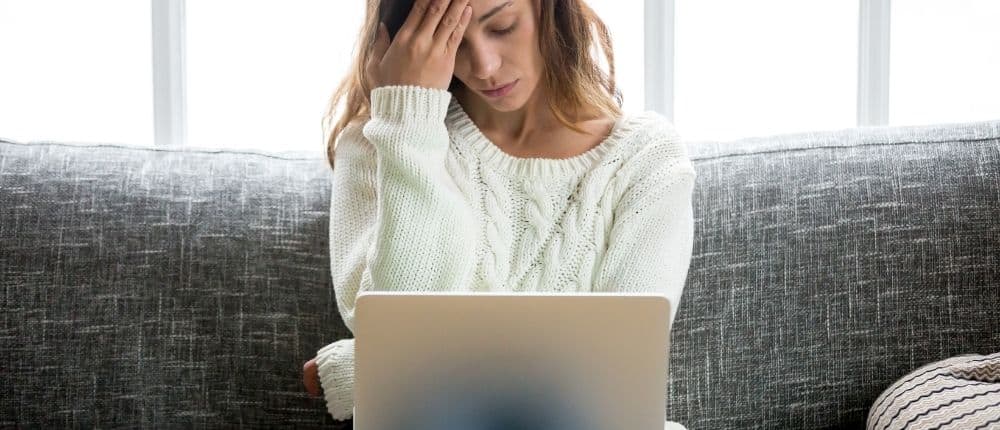
This website uses cookies to improve your experience. We'll assume you're ok with this, but you can opt-out if you wish. Read More
The Next Round: What happens after you change your drinking?


I’m really worried about my friend. Since lockdown started, I’ve found that I’ve really cut back on my drinking. But it seems like the pandemic has had the opposite effect for her. I recently discovered how much my friend drinks every day, and I’m worried about her. I don’t know what to do. Help! Julie

Many people have found that their drinking has changed in the last year. 2020 seems to have polarised our drinking habits. Some people have found they are drinking less, other than they are consuming a lot more alcohol than before. It’s a relatively rare drinker whose habits were changed as the world transformed around them.
So it’s not surprising that the last nine months has had a different impact for you and your friend. I’ve got some practical tips about how you can talk to your friend, but before we get to those, let’s talk about three different types of drinking.
When drinking becomes a problem for us, it normally happens in one of three ways:
Now, it’s worth saying that most of us display a mixture of these tendencies. Our free course, How to Change Your Drinking, includes a self-assessment that helps us understand which types of drinking are causing us problems. But it’s important to know. Each of these types of drinking requires different tactics if we are going to overcome it.
If your friend drinks every day, the types of problem drinking outlined above will give you a clue as to why. But to know for certain, you’ll have to talk to her.
It’s good that you’ve noticed your friend drinks every day. And your worry for her is natural. But it is important to tread carefully. Ultimately, we change because we are ready to, not because other people are concerned about us. This will be as true for your friend as anyone.
Start by sending your friend a message. Tell her how much you’d love to catch up, and see if she free for coffee one morning. Zoom, Facetime and WhatsApp make face-to-face chats easier than ever.
Remember that you are starting a conversation, not a confrontation. This isn’t an intervention. My guess is that emotional drinking has become an issue for your friend. So rather than starting the conversation about her drinking, simply ask how she is. It may be that you don’t talk about drinking at all, and that’s OK. Even if your friend drinks every day and knows this is affecting her, she may have bigger problems to deal with.
For example, loneliness, anxiety and uncertainty can be reasons for problem drinking. So is the bigger issue her alcohol consumption, or that your friend is isolated, worried and concerned about the future? Make sure you hear about her life from her perspective. Be prepared to listen with empathy. Give her space to speak and reflect back what she has said. You can, of course, tell her your worries but it’s especially important to resist telling her what to do. Give her space to reach her own conclusions.
And finally, remind her why you are friends with her. If your friend has been struggling for a while, she may feel bad about herself. And she might have stopped believing that she can change. So don’t expect a one-off conversation to change everything, but stay involved. You can ask her how things are going.
If you want some more ideas and practical tips, we discussed how to talk to a loved one about their drinking in a recent episode of the Club Soda podcast.
Remember, it’s never your job to solve your friend’s problems for her. But right now, she may need your friendship more than ever. Be the best friend you know how to be.
Cheers

Dru Jaeger is one of Club Soda’s co-founders and the author of How to Be a Mindful Drinker. He leads Club Soda’s courses for people who want to change their drinking, including our latest in-depth programme, How to Stop Drinking. If you’ve got a question about any aspect of changing your drinking, you can send Dru an email.
This website uses cookies to improve your experience. We'll assume you're ok with this, but you can opt-out if you wish. Read More
| Name | Domain | Purpose | Expiry | Type |
|---|---|---|---|---|
| wpl_user_preference | joinclubsoda.com | WP GDPR Cookie Consent Preferences. | 1 year | HTTP |
| PHPSESSID | www.tickettailor.com | PHP generic session cookie. | 55 years | HTTP |
| AWSALB | www.tickettailor.com | Amazon Web Services Load Balancer cookie. | 7 days | HTTP |
| YSC | youtube.com | YouTube session cookie. | 55 years | HTTP |
| Name | Domain | Purpose | Expiry | Type |
|---|---|---|---|---|
| VISITOR_INFO1_LIVE | youtube.com | YouTube cookie. | 6 months | HTTP |
| Name | Domain | Purpose | Expiry | Type |
|---|---|---|---|---|
| _ga | joinclubsoda.com | Google Universal Analytics long-time unique user tracking identifier. | 2 years | HTTP |
| sbjs_migrations | joinclubsoda.com | Sourcebuster tracking cookie | 55 years | HTTP |
| sbjs_current_add | joinclubsoda.com | Sourcebuster tracking cookie | 55 years | HTTP |
| sbjs_first_add | joinclubsoda.com | Sourcebuster tracking cookie | 55 years | HTTP |
| sbjs_current | joinclubsoda.com | Sourcebuster tracking cookie | 55 years | HTTP |
| sbjs_first | joinclubsoda.com | Sourcebuster tracking cookie | 55 years | HTTP |
| sbjs_udata | joinclubsoda.com | Sourcebuster tracking cookie | 55 years | HTTP |
| sbjs_session | joinclubsoda.com | SourceBuster Tracking session | Session | HTTP |
| Name | Domain | Purpose | Expiry | Type |
|---|---|---|---|---|
| mailchimp_landing_site | joinclubsoda.com | Mailchimp functional cookie | 28 days | HTTP |
| __cf_bm | tickettailor.com | Generic CloudFlare functional cookie. | Session | HTTP |
| NID | google.com | Google unique id for preferences. | 6 months | HTTP |
| Name | Domain | Purpose | Expiry | Type |
|---|---|---|---|---|
| _ga_10XZMT03ZM | joinclubsoda.com | --- | 2 years | --- |
| AWSALBCORS | www.tickettailor.com | --- | 7 days | --- |
| cf_clearance | tickettailor.com | --- | 1 year | --- |
| VISITOR_PRIVACY_METADATA | youtube.com | --- | 6 months | --- |
Join Club Soda for 10% off your first order of drinks for UK delivery. Plus get our latest news and special offers for members to choose better drinks, change your drinking and connect with others.
If you get an error message with this form, you can also sign up at eepurl.com/dl5hPn